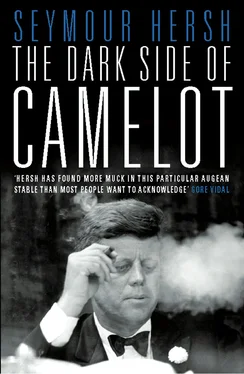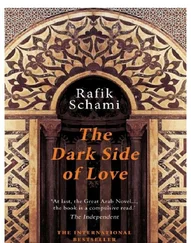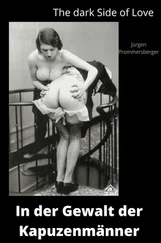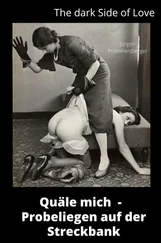Sidey got his clearest insight into Kennedy, he told me, when, while doing an article on the president’s reading habits for Life magazine, he asked him to list his ten favorite books. “Without hesitating he said, ‘ Melbourne ,’” referring to the much-acclaimed 1939 biography of Lord Melbourne, Queen Victoria’s prime minister and political adviser. Sidey immediately read the book. “It was the story,” he said, “about the young aristocracy of Britain … who gave their lives in military campaigns, who held the ideal of empire and national honor above all else. But on the weekends, when they went to their country estates, it was broken-field running through the bedrooms. I mean they swapped wives, they slept with others. But the code of that period was nobody talked about it. And you didn’t get divorced; otherwise, you were disgraced.
“I saw Kennedy,” Sidey added, “and I said, ‘Listen, now I know you better than anything. [Melbourne] tells me more about you than anything else.’ He just laughed and said, ‘Well, I’m fascinated with it. It was an interesting period in history.’” From then on, Sidey said, he and the president had a shared secret.
Kennedy was particularly energized by the West Coast. Joe Naar, an aspiring television producer, was a friend of the actor Peter Lawford, the president’s brother-in-law, and spent weekends at the Lawfords’ Santa Monica home, which was always crowded with show business celebrities. Naar remains enthralled today when he recalls Kennedy’s vibrance and energy in their chance meetings over lunch in Santa Monica. “He would come in and sit down and go around the room,” Naar recalled in an interview. “He knew everyone’s business. He made you feel like he cared about you and about what you were doing with your life. I was like nobody—the least important person there. He knew I was trying to develop television series and he’d say, ‘I’ve got an idea for a series I want to talk to you about.’ He did that with everyone at the table, some significant and some more like me. He was just the best.” Kennedy also had an unerring ability to put others at ease. Naar’s home burned down in 1961 and the president sent a photograph of Smokey the Bear with a note wondering where the bear had been during the fire. There was a Los Angeles reception soon after, and Naar’s wife was going to meet Kennedy for the first time. She was nervous about it and practiced shaking his hand and thanking him for the photograph. When the moment came, Naar recalled, his wife instead blurted, “Thank you, Mr. Picture.” She was mortified, but Kennedy “just threw his arms all over her and hugged her and laughed. He knew what happened,” Naar told me. “And I can’t forget that.”
Kennedy’s sense of his own importance and his hold over his friends distressed some of their wives, who saw Jack in a far more ambivalent light than did their husbands. Charles Spalding’s former wife, Betty, had met the Kennedys in the mid-1930s on Cape Cod and was especially friendly with Eunice, their third-eldest daughter. Her husband, she said, served one essential function for Jack Kennedy after his high-society wedding to Jacqueline Bouvier, as did all his male friends: escorting women in public who were really meant for Jack. “He bearded for him. That’s what they were doing—even Bobby—cleaning up after or bearding for him.” Like her husband, Betty Spalding found Jack Kennedy “charming and great fun to be with.” But, she added, “you didn’t know whether you were being manipulated.”
Jewel Reed said that she eventually became very disturbed by Kennedy’s “tremendous power over men—more than over women. Jack was more comfortable with men than with women. He didn’t have any value for women, except for a particular purpose.” Reed told me that Kennedy would often ask her husband to join him for a night of “male prowling,” and leave her at home. Kennedy couldn’t understand when his buddy Jim occasionally chose, at his wife’s insistence, not to go. The Reeds’ marriage, as did the Spaldings’, broke up during Kennedy’s days in the White House.
Gloria Emerson came to understand that the wives of Jack’s friends “didn’t like Jack at all because he had such a claim over their husbands.” The women were “completely left out,” Emerson said, “just put aside. It was another cultural climate. And I think they were jealous of JFK, because he could induce people to do things for him, and he was a great actor. He could make them believe that he really needed them to do these things for him—and why not? That’s part of the role of a skillful politician.”
Jack Kennedy’s attitude toward marriage followed the pattern his father set: he and his sons were to get married, stay married, have lots of children, and sleep with any woman they could. Rose Kennedy embraced the Catholic church and ignored what was going on, with her sons as well as her husband, while the Kennedy daughters spent their lives embracing the infidelities of the men in their family, often helping to make it easier for their brothers to cheat on their wives.
Sometimes the daughters would do the same for their dad. The novelist Dominick Dunne, who was working in Hollywood as a television producer for a weekly dramatic series in the 1950s, recalled in an interview for this book that Patricia Lawford, Joe Kennedy’s daughter, who was then married to actor Peter Lawford, routinely telephoned Dunne’s wife when her father was in town to ask, “Who’s on the show?” Lawford was told the names and telephone numbers of the female stars, Dunne said, and then relayed the information to the always eager Joe. *
The man most important to Kennedy, other than his father, was his brother Bobby; yet there were a few times early in the 1950s, Emerson said, when Jack hoodwinked even him. “Jack was having a liaison with one of my roommates in a hotel room and Bobby was at the door suddenly. And he made the woman stand in a closet while he talked to Bobby,” Emerson remembered. “So there were some times he probably concealed, but less and less as time went by. The Kennedys have always felt themselves under siege and were distrustful of the outside world. And that’s why so many men wanted JFK to believe that they could be trusted—it was a test they had to pass.”
Hugh Sidey described the brothers’ relationship as one of “almost total communication. It was almost osmosis. Almost every time I was in talking to Jack the phone would ring, once or twice, it would be Bobby. Muffled conversations back and forth about whatever it was. I don’t think there were secrets of any significance they kept from each other.”
Richard N. Goodwin, who wrote speeches for Kennedy during the 1960 campaign and accompanied him to the White House, described Robert Kennedy as “completely his brother’s man. He was a guy whose basic purpose in life was to advance and protect the career of John Kennedy.” In an interview for this book in 1997, Goodwin recalled one meeting between the president and a group of southern senators on the White House balcony. One of the senators “leaned forward and said, ‘Well, Mr. President, I’m afraid I’m gonna have to attack you on civil rights.’ And Kennedy says, ‘Can’t you attack Bobby instead?’ Bobby played that role,” Goodwin explained. The younger Kennedy “was always reflecting his brother’s feelings.” Goodwin was also present at a White House meeting after the Bay of Pigs when Bobby tore into a senior State Department official who, after the fact, had told a reporter that he was opposed to the invasion. “I watched Bobby just lash into him,” Goodwin recalled. “‘You can’t undermine my brother.’ And John Kennedy just sat there quietly, never said a word throughout. But I have no doubt that Bobby was reflecting conversations that the two of them had.”
Читать дальше












